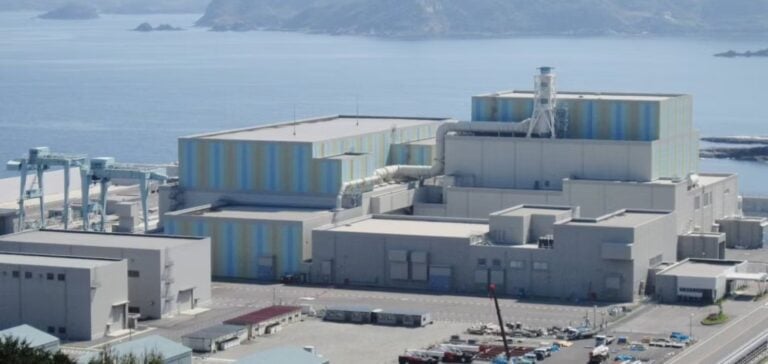The Shimane 2 nuclear power plant, operated by Chugoku Electric Power Company, resumed operations on December 7, according to an official announcement. Located in Shimane Prefecture, the facility had been offline since January 2012. With a capacity of 789 megawatts electric (MWe), this boiling water reactor (BWR) becomes the fourteenth Japanese reactor to be brought back online since the Fukushima incidents in 2011.
In June 2021, Shimane 2 reached a critical milestone by securing approval from the Japanese nuclear regulatory authority after meeting stringent safety requirements. It is also the fifth BWR to receive such authorization. The process involved consultations with local communities and the formal consent of the municipalities concerned, including Matsue, Izumo, Yasugi, and Unnan. In June 2022, the governor of Shimane gave final approval for the restart.
A Clear Schedule for a Gradual Restart
Following the final authorization, Chugoku Electric Power announced a rigorous schedule for the restart of Shimane 2. Loading the 560 fuel assemblies into the reactor core began on October 28 and was completed by November 3. The restart was achieved on December 7 at 3:00 PM, with the reactor reaching a critical state at 4:50 PM.
Chugoku Electric Power President and CEO Kengo Nakagawa emphasized the importance of this milestone, stating that safety remains the top priority. “We will continue thorough inspections and equipment checks as we move toward gradually resuming commercial operations, planned for January 2025,” he said.
A Strong Signal for Japan’s Nuclear Sector
The restart of Shimane 2 comes as boiling water reactors have restarted at a slower pace compared to pressurized water reactors. According to Kingo Hayashi, chairman of the Federation of Electric Power Companies of Japan, this restart represents a turning point for the nuclear sector. “It not only contributes to energy security and a stable electricity supply but also plays a crucial role in carbon neutrality efforts,” he stated.
Local and national authorities continue to closely monitor Shimane 2’s operations to ensure transparency and reassure local communities. Chugoku Electric Power has also expressed its commitment to maintaining an ongoing dialogue with stakeholders.






















